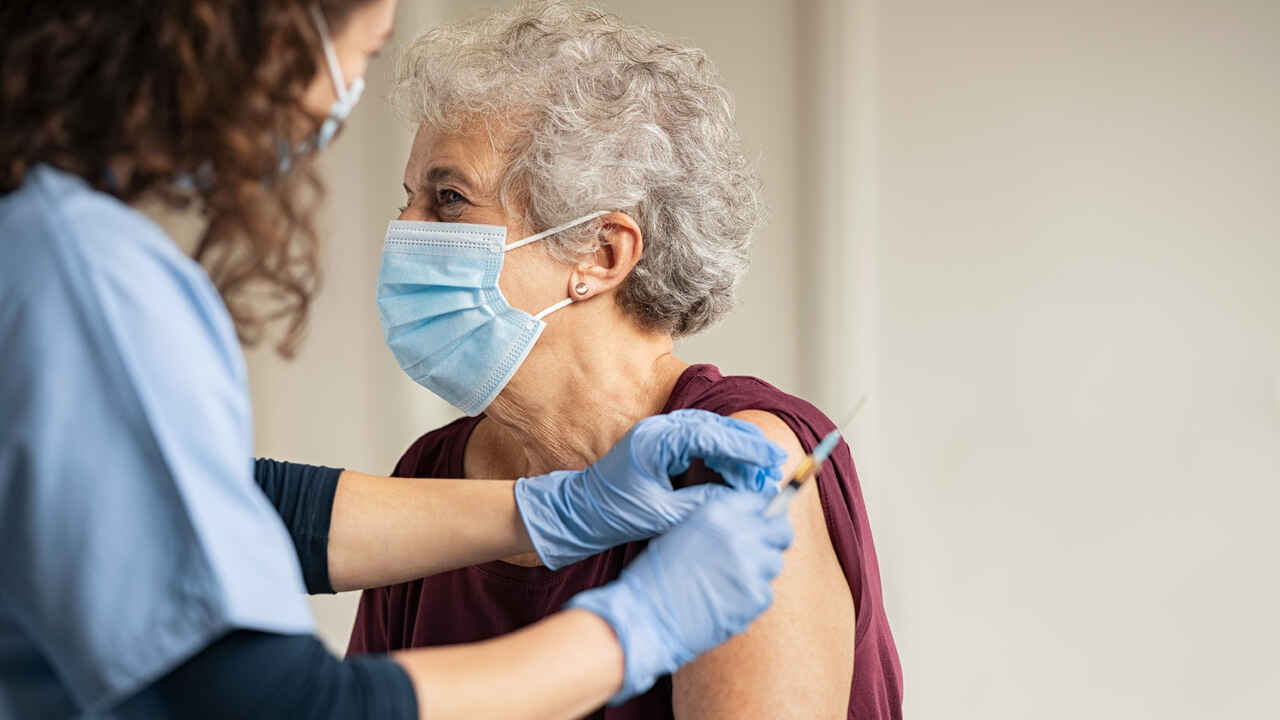A COVID Vaccine Update from our Infectious Disease Specialist, Dr. Tatiana C. Saavedra
Review of the vaccines available in the United States against COVID and their current approval:
-
- Pfizer: FDA approved mRNA vaccine; 2-dose series 21 days apart for adolescents and adults ages 16 and older; EUA for children ages 5-15 using the same schedule
- Moderna: EUA authorized by FDA; mRNA vaccine 2-dose series 28 days apart for adults ages 18 and older
- Johnson & Johnson: EUA authorized by the FDA; viral vector vaccine as 1-dose series for adults ages 18 and older
When are additional doses of the vaccine given?
-
- Can be given as a part of the primary vaccine series with the intent to augment the initial immune response.
-
- Example: 3rd dose of mRNA vaccine in immunocompromised groups
-
- Can be given as a booster dose after the primary series is complete with the intent to re-inforce the immune response.
- Can be given as a part of the primary vaccine series with the intent to augment the initial immune response.
When should a third dose of the mRNA vaccine be given?
-
- In August 2021, the FDA and CDC recommended a 3rd dose of an mRNSA COVID-19 vaccine be given 28 days after the 2-dose series, as part of a primary series for immunocompromised groups.
Booster doses after the primary series is complete:
-
- Use of an additional dose after the primary series is complete is intended to re-stimulate (boost) immunity in individuals whose immunity may have waned over time.
- A benefit is that it may enhance protection against emerging variants.
- As of October 20, 2021, booster doses of all 3 vaccines are available in the U.S.
- Then the FDA authorized heterologous “mix and match” booster doses for all 3 vaccines:
-
- Single booster of Pfizer or Moderna at least 6 months after completion of the primary series.
- Single dose of Johnson & Johnson at least 2 months after completion of the single dose for ages 18 and older.
-
On October 21, 2021 an updated statement from the CDC was released:
-
- Individuals receiving either the Pfizer or Moderna vaccine, the following groups are eligible for a booster shot after 6 months of completion of your primary series:
-
- Ages 65 or older
- Ages 18 or older living in a long term care facility
- Ages 18 or older with an underlying medical condition
- Ages 18 or older that work or live in a high risk setting
-
- Individuals receiving the Johnson & Johnson vaccine, booster shot is recommended for those 18 or older who were vaccinated 2 or more months ago.
- Individuals receiving either the Pfizer or Moderna vaccine, the following groups are eligible for a booster shot after 6 months of completion of your primary series:
What does heterologous “mix and match” mean?
-
- You can mix or match which vaccine (either mRNA or vector) you receive as a booster
| Vaccine | Schedule | Age | 3rd dose | Booster |
|
Pfizer |
2-dose, 21 days apart |
Age 5-16 under EUA;
FDA-Approved ages 16 and older |
28 days after series, same vaccine; immunocompromised only | 6 months after series, can be different vaccine: Pfizer, Moderna, or J&J |
|
Moderna |
2-dose, 28 days apart |
Age 18 and older under EUA |
28 days after series, same vaccine, immunocompromised only | 6 months after series, can be different vaccine: Pfizer, Moderna, or J&J |
|
Johnson & Johnson (J&J) |
One-dose |
Age 18 and older under EUA |
Not indicated |
2 months after series, can be different vaccine: Pfizer, Moderna, or J&J |
